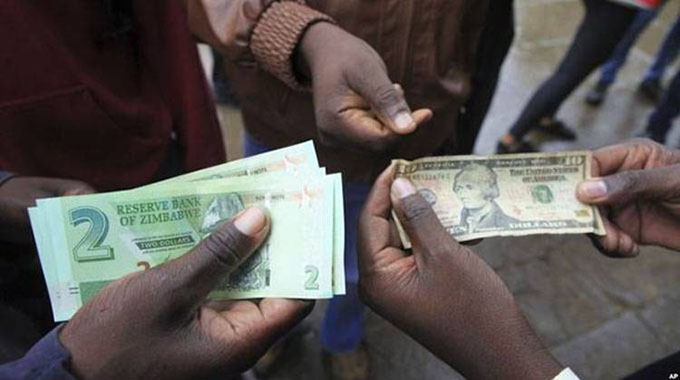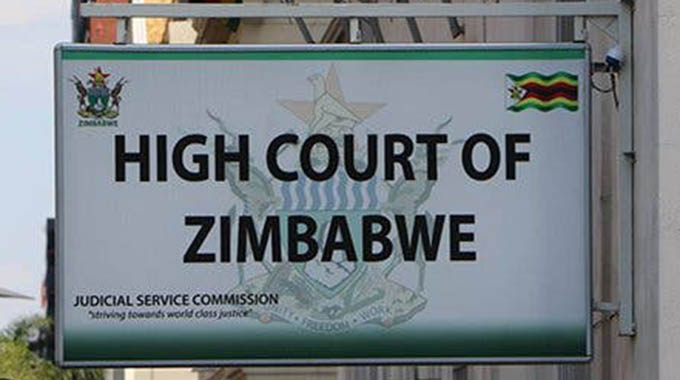‘Act decisively on currency dealings’

Golden Sibanda, Senior Business Reporter
THE Reserve Bank of Zimbabwe (RBZ) must act decisively on illicit currency dealings instead of issuing mere threats against gross financial misconduct that has serious negative effect on the economy, economists say.
This comes after the central bank last week warned it was aware of people who are manipulating the currency with the intention of destabilising the exchange rate that has been stable over the last four months.
Financial analysts said the fact that, as regulator, RBZ can be aware of people indulging in illicit financial conduct that hurts the local currency but does not issue penalties that are deterrent enough, raises suspicion that some of its members and or banking sector officials are complicit.
The RBZ said later on Friday last week that after investigations by the bank’s Financial Intelligence Unit, it emerged that Chinese firm, China Nanchang, had used its bank account in the last few days to release millions of dollars on to the market, stoking a wild run of the exchange rate.
The account has since been frozen while the central bank promised it would take extra efforts against any culprits involved in destabilising illicit foreign currency activities and manipulation of the foreign exchange rates.
“The FIU has ordered the freezing of the identified account pending further analysis and is undertaking ongoing surveillance to identify more culprits involved in the parallel market transactions, particularly on the Ecocash platform,” RBZ said.
But it would seem that there is some laxity or connivance between some well-placed individuals in the banking sector on such issues, as it takes too long for the central bank’s surveillance and monitoring teams to discover such malpractices.
The apex bank said this latest financial misconduct was unwarranted and was undergoing further probing by the bank’s FIU, which last year also reacted on similar misconduct and froze bank accounts of the culprits.
Currency volatility, which started after Zimbabwe floated the domestic currency, has been blamed for driving inflation.
“It has come to the attention of the bank that there are some exchange rate manipulators that are exerting pressure on the forex market with the intention of destabilising the stability that the country has been experiencing over the past four months,” the RBZ posted on its twitter handle.
Renewed upsurge of the alleged illicit financial dealings by cash-rich, powerful and connected individuals or entities is behind the new rate impetus, which saw a sudden jump in the parallel market rate last week.
Following months of trading around $21 and $22 to the US dollar for electronic dollars and $16,5 to $18 to the US dollar for parallel market cash transactions, the rate jumped to between $24 and $26 against transfer or electronic dollars while it skipped to $19-$20 when buying using cash.
Economist John Robertson said there was also possibility some beneficiaries of currency trading on the official interbank market are accessing foreign currency at low exchange rates and offloading on the black market at huge premiums, but hurting the Zimbabwe dollar in the process.
“The people who are buying money at the official exchange rate seem not to be using that money for importing things. It would appear they went on the (parallel) market and sold that money at $24-$25 to the US dollar, simply for profit” he said.
Mr Robertson said if everybody who gets foreign currency on the interbank used it to import products sold in supermarkets, the prices of goods would reflect the lower cost of buying the money.
He said that the prices of goods in most shops reflected the cost of buying money at parallel market rates. Mr Robertson said the volatility, which has tended to entail upward movement, is what is driving inflation.
“It would seem that some people very close to or connected to people in the Reserve Bank are the ones guilty of this behaviour. We expect the Reserve Bank to use its authority to discipline its people,” he said.
Finance Minister Mthuli Ncube last week said the country had over the last four months experienced declining inflation and price stability largely due to the fact that the exchange rate had remained under control.
He projected the monthly rate of inflation to fall to below 10 percent by end of the first quarter on account of tighter control of reserve money and money supply.
The annual inflation rate is seen falling to 50 percent by December 2020.
At the last official count, annually inflation had reached post dollarisation high of 175,6 percent in June last year before the publication of the annual rate was suspended since it included inflation data collected based on prices from different currency regime that was in place prior to the currency switch in February 2019.








Comments